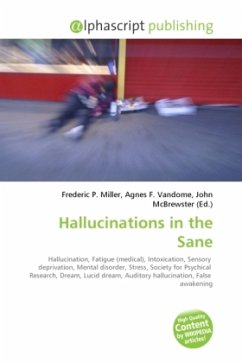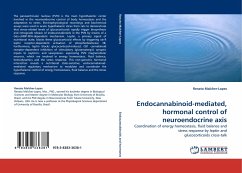
Hallucinations in the Sane
Versandkostenfrei!
Versandfertig in 6-10 Tagen
30,99 €
inkl. MwSt.

PAYBACK Punkte
15 °P sammeln!
A hallucination may occur in a person in a state of good mental and physical health, even in the apparent absence of a transient trigger factor such as fatigue, intoxication or sensory deprivation. It is not widely recognised that hallucinatory experiences are not merely the prerogative of those suffering from mental illness, or normal people in abnormal states, but that they occur spontaneously in a significant proportion of the normal population, when in good health and not undergoing particular stress or other abnormal circumstance. The evidence for this statement has been accumulating for ...
A hallucination may occur in a person in a state of good mental and physical health, even in the apparent absence of a transient trigger factor such as fatigue, intoxication or sensory deprivation. It is not widely recognised that hallucinatory experiences are not merely the prerogative of those suffering from mental illness, or normal people in abnormal states, but that they occur spontaneously in a significant proportion of the normal population, when in good health and not undergoing particular stress or other abnormal circumstance. The evidence for this statement has been accumulating for more than a century. Studies of hallucinatory experience in the sane go back to 1886 and the early work of the Society for Psychical Research, which suggested approximately 10% of the population had experienced at least one hallucinatory episode in the course of their life. More recent studies have validated these findings; the precise incidence found varies with the nature of the episode and the criteria of hallucination adopted, but the basic finding is now well-supported.












